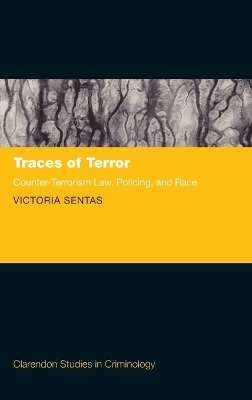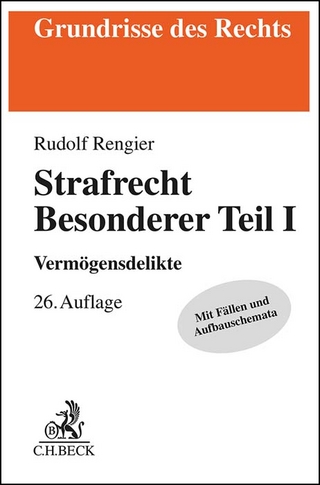
Traces of Terror
Counter-Terrorism Law, Policing, and Race
Seiten
2014
Oxford University Press (Verlag)
978-0-19-967463-3 (ISBN)
Oxford University Press (Verlag)
978-0-19-967463-3 (ISBN)
Presents an innovative new argument that counter-terrorism law and policing produce a 'common sense' knowledge about Muslims and targeted ethnic minorities which, in turn, establishes contemporary practices, understandings and norms which mark these groups as 'of interest' to law enforcement and other organisations.
In the wake of 2001, terrorism laws and their policing have been charged with eroding civil liberties and discriminating against Muslim and ethnic minority peoples. Traces of Terror: Counter-Terrorism Law, Policing, and Race goes further and asks how counter-terrorism reproduces the social relations of race: what police and legal practice, what knowledge and what power makes over-policing normal.
Based on field work in Australia, this book investigates the effects of counter-terrorism law and policing on Muslim, Somali, Turkish Kurds and Sri Lankan Tamil communities. Drawing together in-depth interviews with members of Victoria Police and those who are being policed, participant observations of community forums, and a detailed investigation of government and police policy, legislation and case law, the author explains how processes of criminalization and racialization are sustained. The study analyses preparatory terrorism offences and 'terrorist organization' laws, as well as the application of contentious concepts including extremism, radicalization and counter-radicalization. The book explains the management of difference, identity and belonging through expanding police and intelligence powers as well as through community policing and multicultural social policy.
Above all, this book traces the persistence of race, racialization and racism in practices presented, on the surface, as 'race neutral', consensual and inclusive. From raids and prosecutions, to informal questioning and communitarian forms of regulation, it demonstrates the enduring and shifting meanings of these concepts as practices and their lived, often contradictory effects on the populations who experience them.
Traces of Terror is not a study of police racism nor of experiences of discrimination, but rather an explanation of the enduring organisation of racial power reflected in, and produced by, counter-terrorism.
In the wake of 2001, terrorism laws and their policing have been charged with eroding civil liberties and discriminating against Muslim and ethnic minority peoples. Traces of Terror: Counter-Terrorism Law, Policing, and Race goes further and asks how counter-terrorism reproduces the social relations of race: what police and legal practice, what knowledge and what power makes over-policing normal.
Based on field work in Australia, this book investigates the effects of counter-terrorism law and policing on Muslim, Somali, Turkish Kurds and Sri Lankan Tamil communities. Drawing together in-depth interviews with members of Victoria Police and those who are being policed, participant observations of community forums, and a detailed investigation of government and police policy, legislation and case law, the author explains how processes of criminalization and racialization are sustained. The study analyses preparatory terrorism offences and 'terrorist organization' laws, as well as the application of contentious concepts including extremism, radicalization and counter-radicalization. The book explains the management of difference, identity and belonging through expanding police and intelligence powers as well as through community policing and multicultural social policy.
Above all, this book traces the persistence of race, racialization and racism in practices presented, on the surface, as 'race neutral', consensual and inclusive. From raids and prosecutions, to informal questioning and communitarian forms of regulation, it demonstrates the enduring and shifting meanings of these concepts as practices and their lived, often contradictory effects on the populations who experience them.
Traces of Terror is not a study of police racism nor of experiences of discrimination, but rather an explanation of the enduring organisation of racial power reflected in, and produced by, counter-terrorism.
Dr Victoria Sentas is a Lecturer in the School of Law at the University of New South Wales, Sydney. She has published in the fields of counter-terrorism, race and criminal justice and serves on the editorial board of the Australian Feminist Law Journal.
1. Traces in Counter-Terrorism: An Introduction ; 2. The Hegemony of Race ; 3. A Motive for Terror: Law and Islam ; 4. 'No Crime Scenes': The Police and Extremism ; 5. Policing Social Cohesion: Community Policing for Counter-Terrorism ; 6. 'We just want to get to know you': The Function of Informal Questioning ; 7. Disrupting Diaspora: Policing Terrorist Organisations ; 8. Without an Inventory
| Erscheint lt. Verlag | 16.1.2014 |
|---|---|
| Reihe/Serie | Clarendon Studies in Criminology |
| Verlagsort | Oxford |
| Sprache | englisch |
| Maße | 147 x 223 mm |
| Gewicht | 562 g |
| Themenwelt | Recht / Steuern ► EU / Internationales Recht |
| Recht / Steuern ► Strafrecht ► Besonderes Strafrecht | |
| Recht / Steuern ► Strafrecht ► Kriminologie | |
| Sozialwissenschaften ► Politik / Verwaltung | |
| Sozialwissenschaften ► Soziologie | |
| ISBN-10 | 0-19-967463-9 / 0199674639 |
| ISBN-13 | 978-0-19-967463-3 / 9780199674633 |
| Zustand | Neuware |
| Haben Sie eine Frage zum Produkt? |
Mehr entdecken
aus dem Bereich
aus dem Bereich
eine praxisorientierte Darstellung
Buch | Softcover (2024)
C.H.Beck (Verlag)
69,00 €


